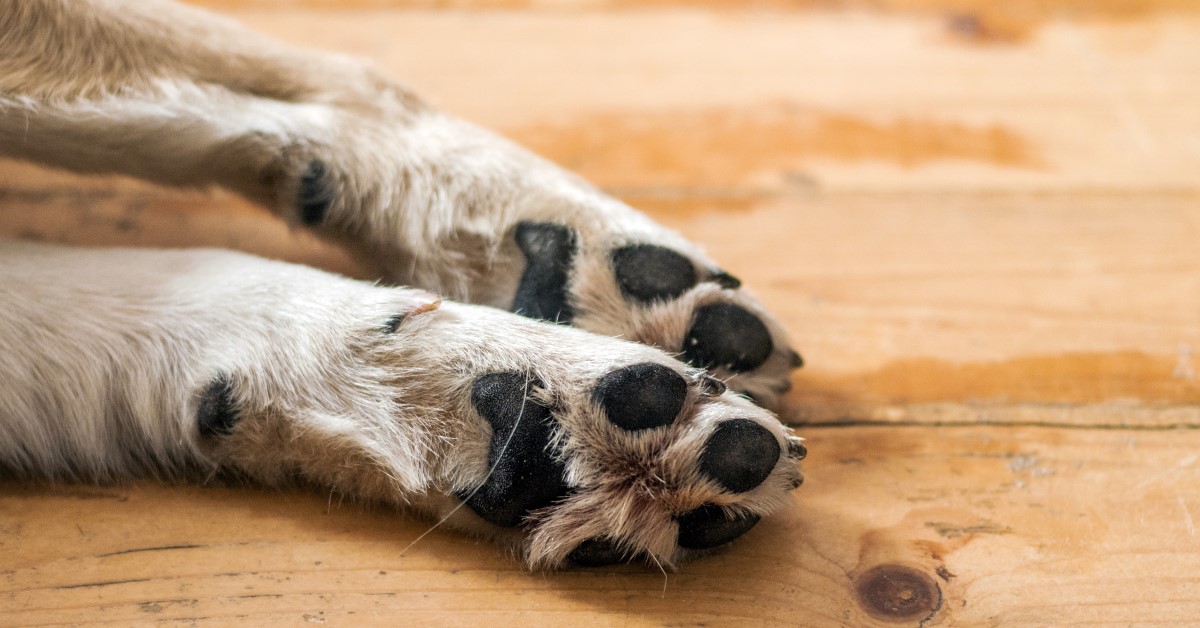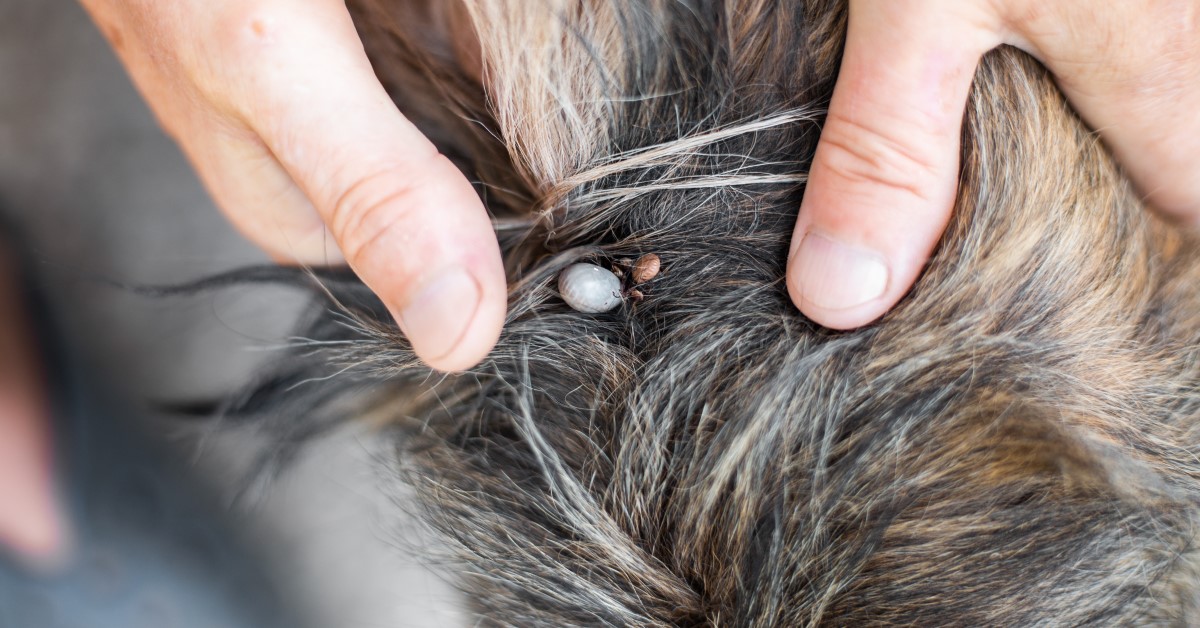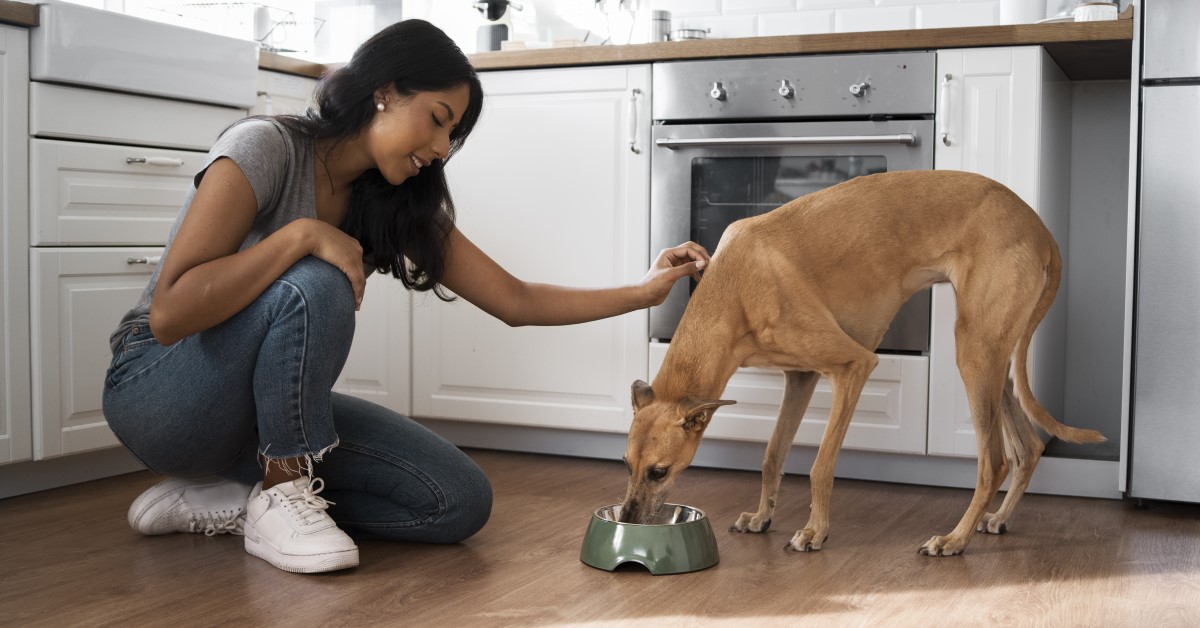Do Your Dog’s Feet Smell Like Fritos? What Causes That Corn Chip Smell
If your dog's paws smell like Fritos or similar corn snacks, here's what you need to know about it as a caring pet owner.

If you've ever had to spray or discard a pair of disgusting old sneakers, you know all too well that feet can stink. But did you know that dogs also tend to cultivate a particular odor in their paws -- an odor that many people think smells like Fritos other corn-based snacks? If your dog's paws smell like the inside of a Fritos bag, you may wonder whether the odor means trouble and what you might need to do about it.
Fortunately, this corn chip smell rarely represents cause for alarm unless it grows obnoxiously strong. It can also be controlled through regular home care and maintenance if you've decided that you just can't live with it. So grab a clothespin for your nose, and let's delve into the pungent ecosystem of your dog's paws.
Bacteria, Fungi, and Other Causes of Stinky Dog Feet
As you may have discovered in your experience as a pet owner, dogs step into all kinds of smelly substances in their daily adventures, an annoying problem that some quick cleaning can resolve. However, a slightly sweet corn chip smell usually stems from microorganisms growing on your pet's toe pads or foot skin. A dog sweats through their feet, and the resulting moisture provides a convenient breeding ground for bacteria and fungi.
Researchers have connected two bacteria in particular, Proteus and Pseudomonas, as the producers of that Fritos smell on dog paws. The same fungi that make up yeasts can also create this odor. A dog can harbor both bacteria and yeast on its paws. These microorganisms can go beyond making a stink to create serious skin infections and/or allergic reactions.
What Counts as Normal Versus Abnormal?
A light whiff of corn chip smell doesn't mean that your dog has some medical condition in need of treatment. On the contrary, pet care experts consider this odor perfectly normal -- to a certain degree. If you have to put your nose up close to your dog's paws to detect the smell, you probably have nothing to worry about. However, if the smelly paws fill the room with stench, the microorganisms behind it have most likely overgrown to the point that they've caused an inflammatory condition known as pododermatitis. Take this as your signal to schedule a trip to the veterinarian.
Other trouble signs may accompany extremely smelly paws, confirming an infection or irritation. For instance, your dog's paws may crust, blister, or ulcerate, compelling it to lick at its paws obsessively. The licking can then make matters worse by irritating the skin further while adding more moisture to the affected paws.
Clean Dog Paws, Healthy Dogs
However you might feel about that Fritos smell, rest assured that your dog doesn't mind, as it's all just part of a dog's normal life. But if you'd like to manage the odor and keep the microorganisms behind it from growing into a real problem, some regular at-home maintenance should do the trick.
Your veterinarian can recommend safe, effective dog shampoos to help you keep your dog's paws clean. Take the time beforehand to get your dog used to the idea of you touching and manipulating its feet. You can then wipe the paws (including the spaces between the toes) with the dog shampoo, drying all the treated areas carefully once you've finished. Don't forget to trim the hair around the toes, since this hair can easily trap moisture and encourage new bacterial or fungal growth.
Keep in mind that allergies, including food allergies, can lead to a smelly, uncomfortable case of pododermatitis. If your dog continues to suffer despite careful, regular cleaning efforts, you may need to ask your vet to test your pup for allergies and prescribe a treatment and prevention strategy. Your dog might benefit from a hypoallergenic diet or need to avoid walking in substances that trigger the allergic response. As a welcome fringe benefit, keeping your dog's paws clean should result in cleaner, fresher-smelling floors, carpets, and upholstery.
It's worth noting that this corn chip smell or other smells can occur in other parts of your dog's body than the feet. Any skin folds that collect moisture can also harbor odor-producing microorganisms and skin infections. In addition to checking and cleaning your pet's paws on a regular basis, remember to clean out those adorable facial wrinkles and other folds with pet-friendly antiseptic wipes from time to time. Redness, swelling, hair loss, or obvious irritation anywhere on your dog merits the same veterinary attention as a probable case of pododermatitis.
If You Smell Trouble, Contact Your Vet
Hopefully you now feel a bit less concerned about that odd Fritos smell emanating from your dog's feet. (You might even grow to like it, as many owners do.) But as previously mentioned, an overpowering odor and signs of skin irritation should prompt you to schedule a veterinary appointment. Your vet can diagnose the exact nature of the problem, providing antimicrobial treatment or other answers as needed, and advise you on best practices to keep your beloved pet's paws in optimal condition for life.
Ready to start saving money on pet wellness care?
Then take a look at Mint Wellness, the pet wellness plan that provides fast reimbursement on routine pet care. Save on vaccinations, wellness exams, preventatives, dental, and more!
Learn More


